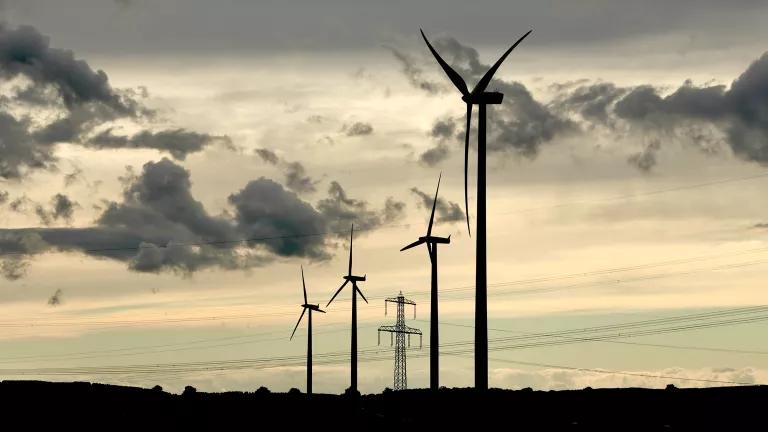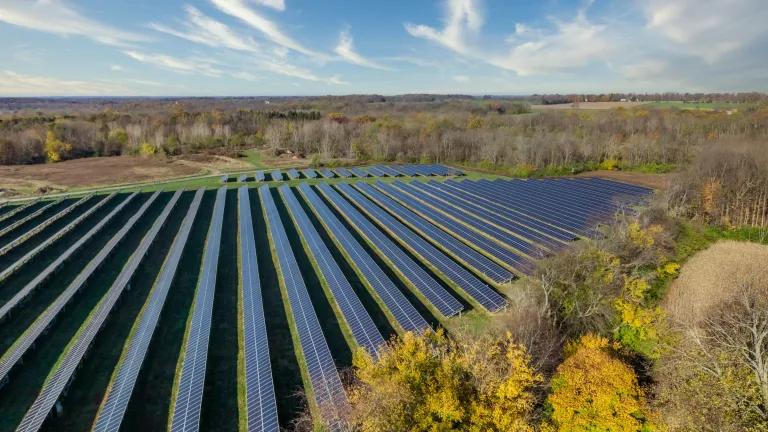A recent report shows that some of America’s best-known companies are installing solar panels on their facilities at an enormous rate, recognizing that clean, renewable sun power is a smart investment for their shareholders – reducing energy costs while increasing their images as good environmental stewards. Rooftops and parking lots are an ideal location for solar power: space that would otherwise go unused can generate clean energy, and revenue.
The Top 20 corporate on-site solar users, some of which sell their products through “big box” stores with lots of roof space or own other massive facilities, have turned those roofs into huge assets with 750 individual PV systems installed in at least 26 states and Puerto Rico, according to the report from the Solar Energy Industries Association (SEIA) and the Vote Solar Initiative (Vote Solar).
For example, according to the report, Walmart and Costco combined have more solar photovoltaic systems installed on their store rooftops than all of the PV capacity deployed in the entire “Sunshine State” of Florida. IKEA, meanwhile, has solar power on 79% of its stores.
The familiar company names on the Top 20 list of corporate on-site solar deployed as of mid-August generate an estimated $47.3 million worth of electricity annually -- enough to power more than 46,500 average American homes, the report said.
They include: Walmart, Costco, IKEA, Macy’s, Johnson & Johnson, Staples, Campbell’s Soup, Walgreens, Bed, Bath & Beyond, Toys ‘R’ Us, General Motors, FedEx, Dow Jones, and Crayola.

Chart by SEIA
“Solar Means Business: Top Commercial Solar Customers in the U.S.” also cited as other significant solar users Apple, Bloomberg LP, Del Monte Foods, GE, Google, Intel, JC Penny, Kaiser Permanente, MARS SNACKFOOD, Stop and Shop, Merck, and REI.
The report underscores that solar power is not only good for the environment, it makes great business sense.
Meanwhile, several of the companies report they are looking at other renewable sources of power, like wind and geothermal. Kohl’s, for example, plans to expand the number of electric vehicle charging stations at its stores. Such corporate investments in clean energy also represent very good news for America and our progress toward a cleaner energy future.
Altogether, U.S. commercial solar installations are generating enough power to serve 390,000 American homes – while reducing greenhouse gas emissions. In fact, the top 10 companies (by capacity) have individually deployed more solar energy than most individual electric utilities in the U.S.
The report also said that as of the middle of this year, businesses as well as non-profit organizations and governments across the United States had deployed over 2,300 megawatts (MW) of solar electric systems on more than 24,000 individual facilities—and this number is growing rapidly; during the first half of 2012, over 3,600 non-residential solar power systems came online, an average of one every 72 minutes.
A few more interesting findings from the report:
- More than 1.2 million solar panels were used for the Top 20 corporate solar users’ installations. If combined, they’d cover more than 544 acres of rooftops.
- With the average price of a finished commercial photovoltaic system rapidly dropping -- by almost 14 percent from second quarter 2011 to the second quarter of 2012 – solar is becoming an increasingly appealing investment.
- Many corporations have solar energy systems in diverse states including Michigan, Wisconsin and Massachusetts – indicating solar energy can make business sense in all climates.
- Businesses as well as other large energy consumers like nonâprofits, schools and public agencies are expected to add 7,000 megawatts of additional PV systems over the next five years -- enough to replace seven retiring coal power plants.
The report, however, only counted on-site solar power systems supplying power directly to company facilities. It also did not include the major companies making massive investments in helping others go solar, which is important to developing the solar energy industry, but noted they include Bank of America, Merrill Lynch and Google.



